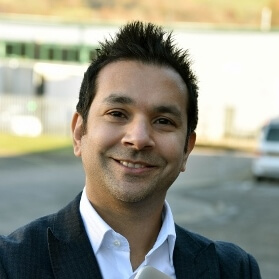Why I Brought My Start-Up Back Down To Earth
The harsh reality of starting a business has popped the ambitions of many a would-be entrepreneurs.

Innovation and entrepreneurship. Two buzz words which have been hailed as the key to future economic success. All we need to do is get ourselves some more entrepreneurs and they’ll build businesses, create jobs and boost the economy. If only it was that simple. And, extraordinarily, coming up with the idea you think will change the world is often the easiest part.
I’m not referring about the slog of setting up your business or the 100-hour weeks as you get it off the ground; I’m talking about being able to turn that buzz of an idea into a viable business plan in the first place.
There’s nothing like that moment when a new idea is born. Whether it’s a bolt out of the blue or a flash of inspiration after years of failed attempts; you know that’s the true moment you’re about to become an entrepreneur and be behind the next big thing.
The problems start when you want to take that spark and try convert others to back you. Those that are about to part with their cold hard cash, whether banks or investors, are firmly in the driving seat and need more than your enthusiasm. They need selling to. They need numbers. And they need it presented to them their way.
It’s an experience which nearly stopped me from becoming an entrepreneur in the first place. Back in 1999 when I was just 25, I walked into my bank inspired to set up my own recruitment firm. I was a young guy, casually dressed in jeans and trainers and I wasn’t ready for what faced me that day.
The bank manager asked me sensible questions but I didn’t have the answers. I was in that creative, buzzy stage and hadn’t captured my idea into a business plan. I was sent away. It completely dented my confidence and I thought I couldn’t do it. I admit, it gave me a sense of worthlessness.
Then, I got angry. It was almost spite that drove me to start up my business; I wanted to prove them wrong. I read up about business planning and started the business from my shared flat using my credit card, even selling my car to pay the bills. Three years later, the business had done so well that a much larger recruitment agency bought me out.
My experience stuck with me; I knew I didn’t want anyone else to go through what I had. Over the next 12 years, I had various roles within Welsh Government, universities and colleges promoting business development, supporting entrepreneurship and helping students to start-up their own businesses.
Unfortunately, it quickly became clear that my experience wasn’t unique. Unless you’re engrained in the business world already you have little idea about what you need to do to turn that entrepreneurial spark from inside your head into a viable business plan.
Time and time again, I saw young people’s eyes light up when they talked about their idea but with no confidence about that next step. I can only imagine how many would-be entrepreneurs are out there that felt they had to abandon their dream because they couldn’t convert it into a viable business plan and failed to get investors to take them seriously.
That sparked my next business start-up, an online platform which takes budding entrepreneurs from their initial concept into forming a fully-fledged business plan. But this is just the start of a society-wide cultural change we so very much need.
We have to all come together to proactively address the issues that potential entrepreneurs face; government, business, academia, the banks and those of us who have learnt from our entrepreneurial experiences.
If we don’t foster entrepreneurship by breaking down these boundaries and facilitating the idea-to-business journey, we’re only allowing a proportion of new businesses to take off and we’re letting down an entire generation of would-be entrepreneurs.
Yes, not every idea is going to make it – but it shouldn’t be prevented because someone doesn’t know what to do next. Just imagine the possibilities if we gave every brilliant idea a fair chance of success.
This is especially true for the younger generation. You often hear education providers being told they need to make young people ‘work ready’. But they also need to learn the right processes and the practical skills to allow them to realise their potential as budding entrepreneurs too.
Some education institutions now have courses or departments dedicated to entrepreneurship and business development; and that’s a fantastic step in the right direction. But this is a culture that needs to be embraced across the board.
We’ve seen some great examples of this starting to happen, for instance one university which uses our platform with their students actually runs it across various departments. So whether you’re studying a science, sport or geography, you’re not excluded from learning these essential skills.
This needs to become the norm – not the exception – and we very much see this as the future of enterprise education. Innovation, new ideas and the next world-changer can come from anywhere. And we need to equip young people so that when we say we’re a society that fosters entrepreneurship, we really mean it.
Lee Sharma is founder and CEO of Simply Do Ideas.
Thanks for signing up to Minutehack alerts.
Brilliant editorials heading your way soon.
Okay, Thanks!




